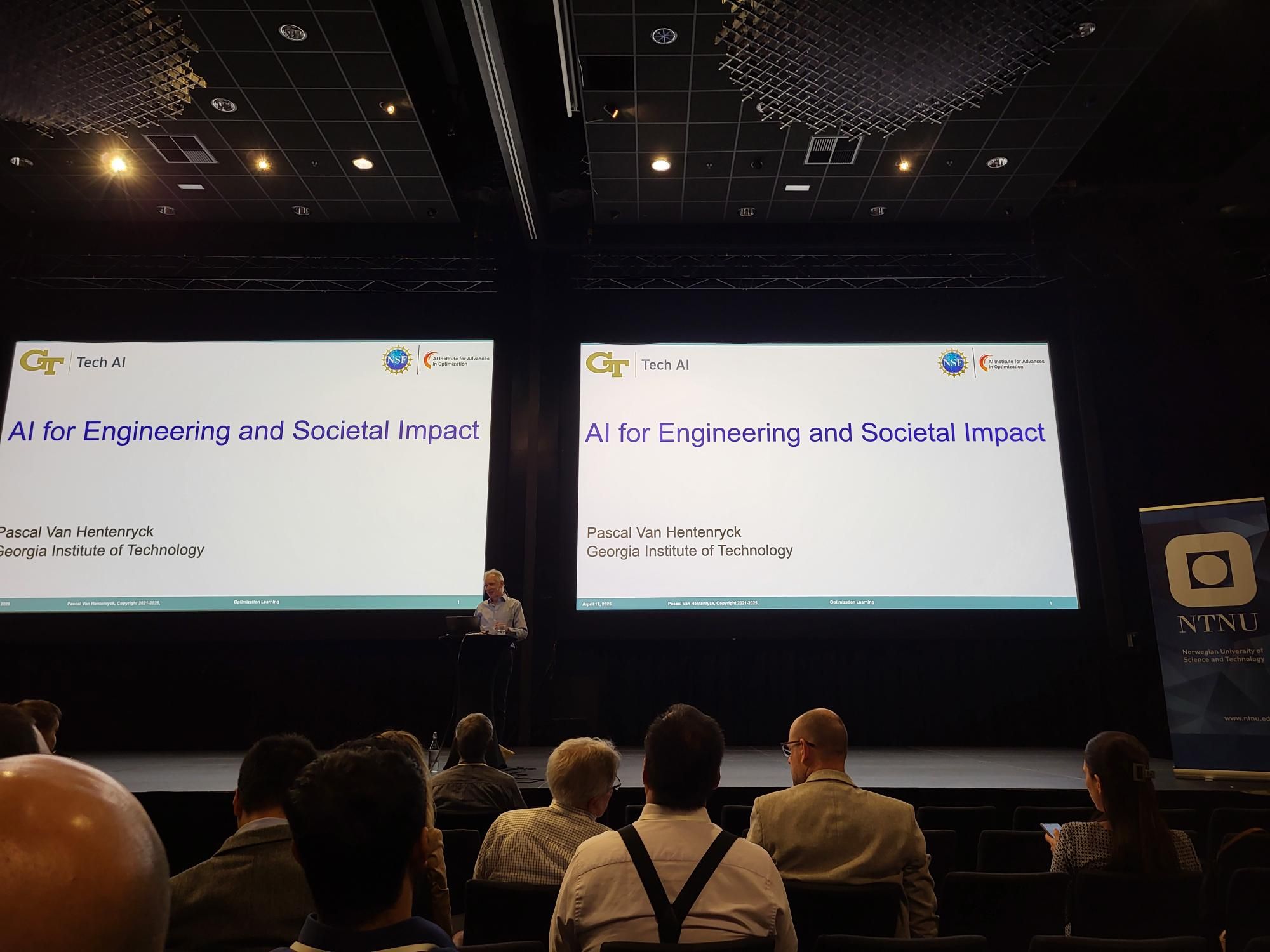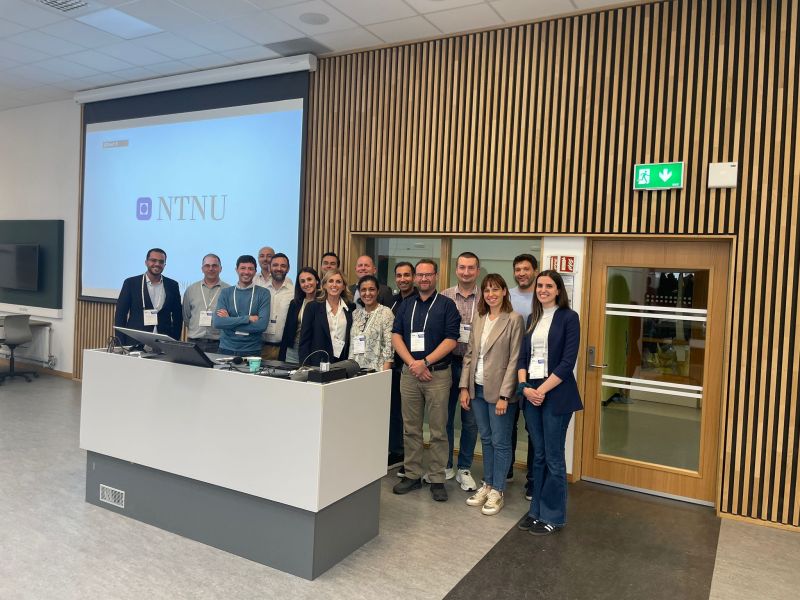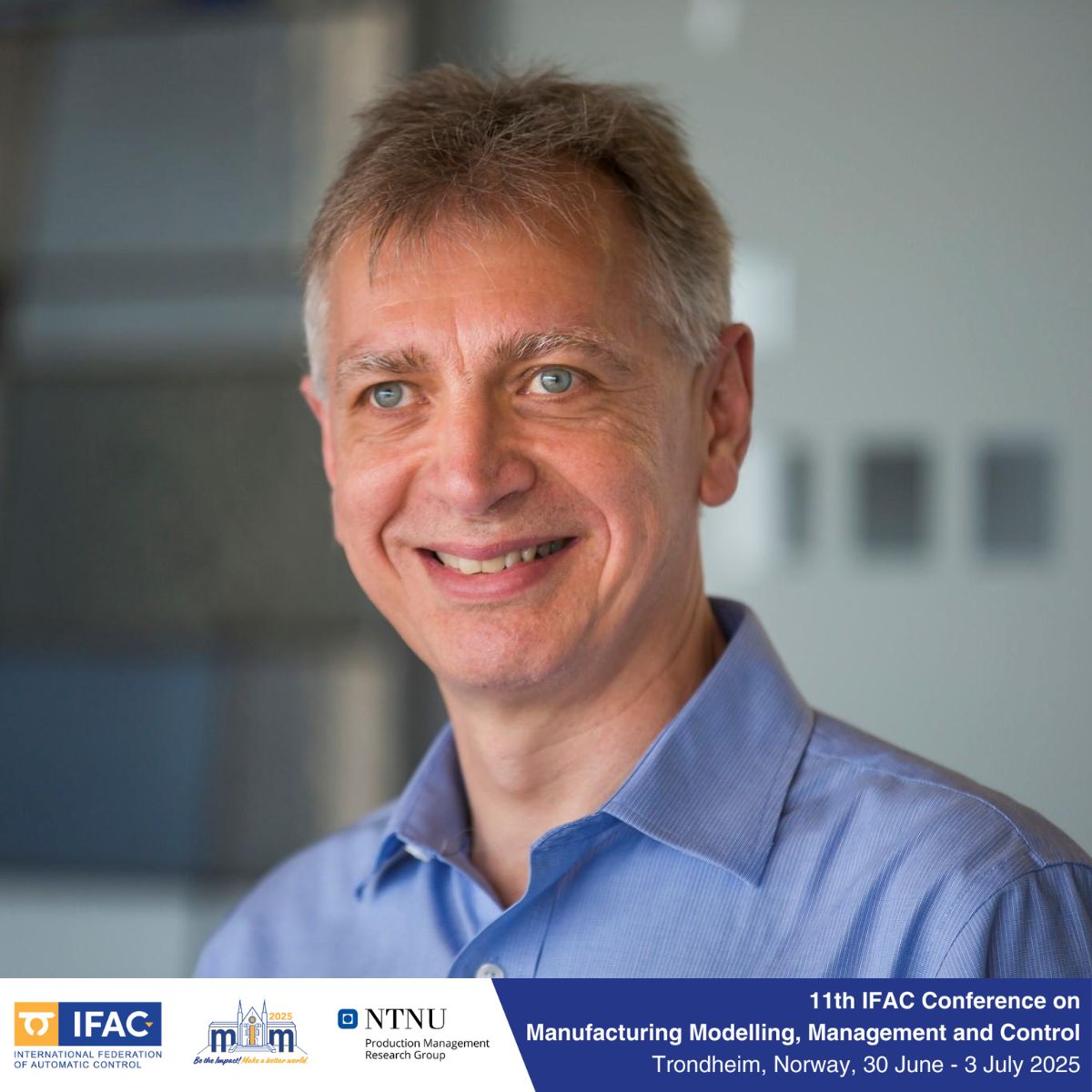Pascal Van Hentenryck, the A. Russell Chandler III Chair and professor at Georgia Tech, and director of the U.S. National Science Foundation AI Institute for Advances in Optimization (AI4OPT) and Tech AI, delivered a keynote address at the 11th IFAC Conference on Manufacturing Modelling, Management and Control (MIM 2025), hosted by the Norwegian University of Science and Technology (NTNU).

Combining Technologies for Real-World Results
Van Hentenryck introduced a series of foundational approaches—such as primal and dual optimization proxies, predict-then-optimize strategies, self-supervised learning, and deep multi-stage policies—that enable AI systems to operate effectively and responsibly in high-stakes, real-time environments. These frameworks demonstrate the power of integrating AI with domain-specific reasoning to achieve results unattainable by either field alone.
“This is not just about building smarter algorithms,” Van Hentenryck said. “It’s about designing AI that can adapt, learn, and optimize under uncertainty—across supply chains, energy systems, and manufacturing networks.”

Grounded in Real-World Impact
The keynote aligned directly with the MIM 2025 focus on logistics and production systems. Drawing from recent work in supply chain optimization and smart manufacturing, Van Hentenryck emphasized how AI4OPT’s research is already generating measurable impact in industry.
MIM 2025, organized by NTNU’s Production Management Research Group and supported by MHI and CICMHE, featured more than 40 experts delivering keynotes, presenting research, and leading breakout sessions across topics in modeling, control, and decision-making in manufacturing and logistics.

